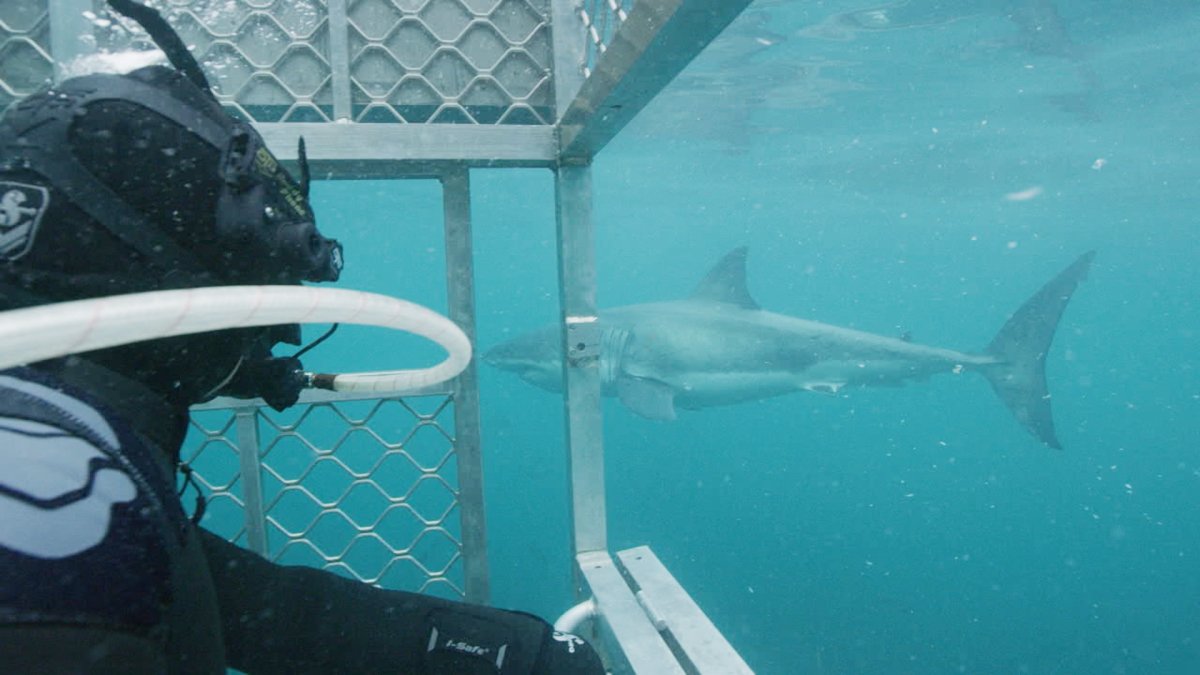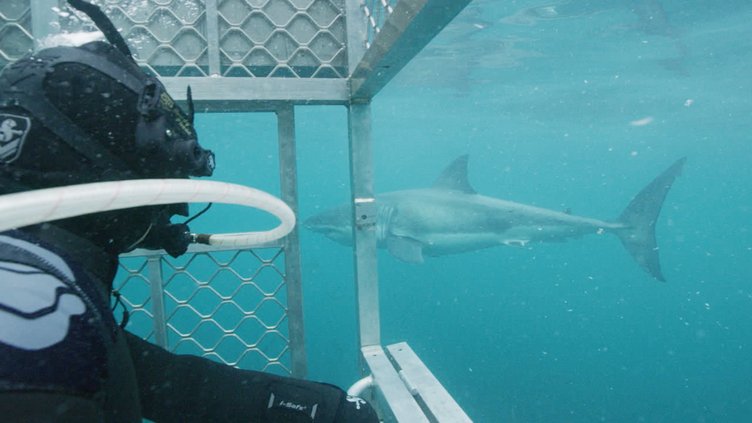BY VICTOR A. PATTON
CV Journalism Collaborative
The phrase “Jaws vs. Leviathan” conjures a variety of images – as the title is certainly reminiscent of kaiju movies where imaginary enormous beasts are pitted against one another.
But unlike those classic monster flicks, on this show there are no guys in rubber costumes or special effects courtesy of Toho studios.
The fact that real-life finned titans once roamed Earth’s oceans is anything but science fiction – and UC Merced shark ecologist Sora Kim has the experience to prove it.
Kim is one of the scientists highlighted on the program “Jaws vs. Leviathan,” which began airing July 7 on Discovery as part of the network’s “Shark Week.”

The week of documentaries celebrates the many members of the series’ namesake from weird wobbegongs to tantalizing threshers.
The program featuring Kim is a Miocene-era look at what life was like for Leviathans and ancient Great White sharks roughly 12 million years ago.
Bottom of Form
Leviathans (also called “Livyatans”) were gargantuan precursors to modern sperm whales that could grow as big as 50 feet long and went extinct around 5 million years ago.
During an interview with The Merced FOCUS, Kim spoke about how fossils of teeth from Leviathans and Great White sharks found in the same area shows the two species of sea creatures could have encountered one another.
“We find the teeth together, the fossils together, in different sediments, fossil deposits in southern Peru,” Kim said. “It probably wasn’t maybe a one-on-one battle, but there was definitely most likely some sort of competition between them.”
Kim, who co-hosts the show with behavioral ecologist Tristan Guttridge, is also shown taking a plunge in the waters off New Zealand’s Stewart Island to see Great White sharks up close in the wild.
She and Guttridge were inside a shark cage that allowed them to safely observe the Great Whites in their ocean environment. It was the first time Kim was able to see Great White sharks in the wild.
The sharks she witnessed while in the water ranged from between six to 12 feet in size. While she was on the boat, there were even bigger sharks. “It was super cool,” Kim said of the experience.
“I think I was struck by how graceful, agile and beautiful they were. And you could really sense their curiosity as to what was going on. There was absolutely no malice and viciousness or all those other things they sort of characterize sharks as in the media and pop culture.”
This isn’t the first time Kim has been featured on Shark Week. Last year she appeared on the program “Jaws vs. The Meg,” which focused on megalodon – a massive ocean predator that swam the seas 23 to 3.6 million years ago.
As part of her research, Kim used a chemical method called stable isotope analysis to examine fossilized shark teeth, and answer questions about megalodon’s diet and body temperature.
“We’re also trying to develop new isotope methods to get at ‘how high on the food chain was megalodon?’ and all these ancient sharks that we don’t necessarily know very much about,” Kim said.
“So I try to do detective work about what animals ate, where they lived, why they maybe went extinct, (and) how they interacted with one another (by) using the chemistry that’s preserved in their teeth.
Although it’s tough to match being in the ocean just feet away from an apex predator, Kim said the most rewarding part of her job is getting early career scientists excited about doing research, particularly those from underrepresented groups.
“A lot of my time and effort is actually spent on just bringing the awareness of (how) anybody can be a scientist, that there are different ways of being a scientist,” she said. “
“Jaws vs. Leviathan” was scheduled to air beginning July 7 on Discovery. Check your television provider for scheduled time.





